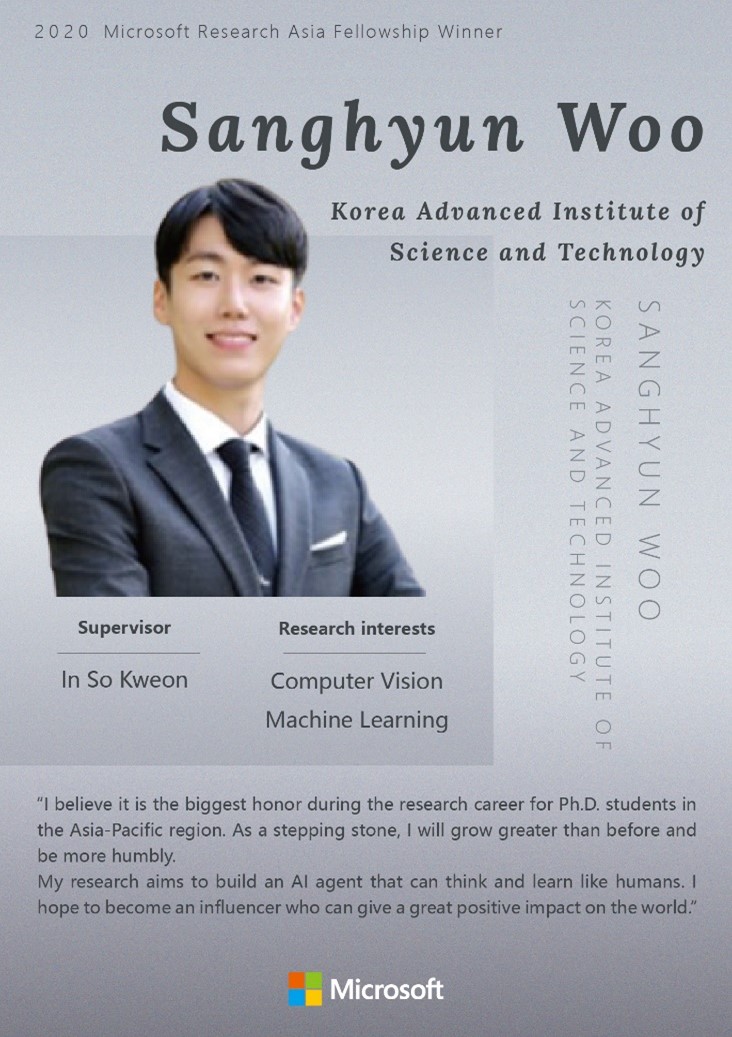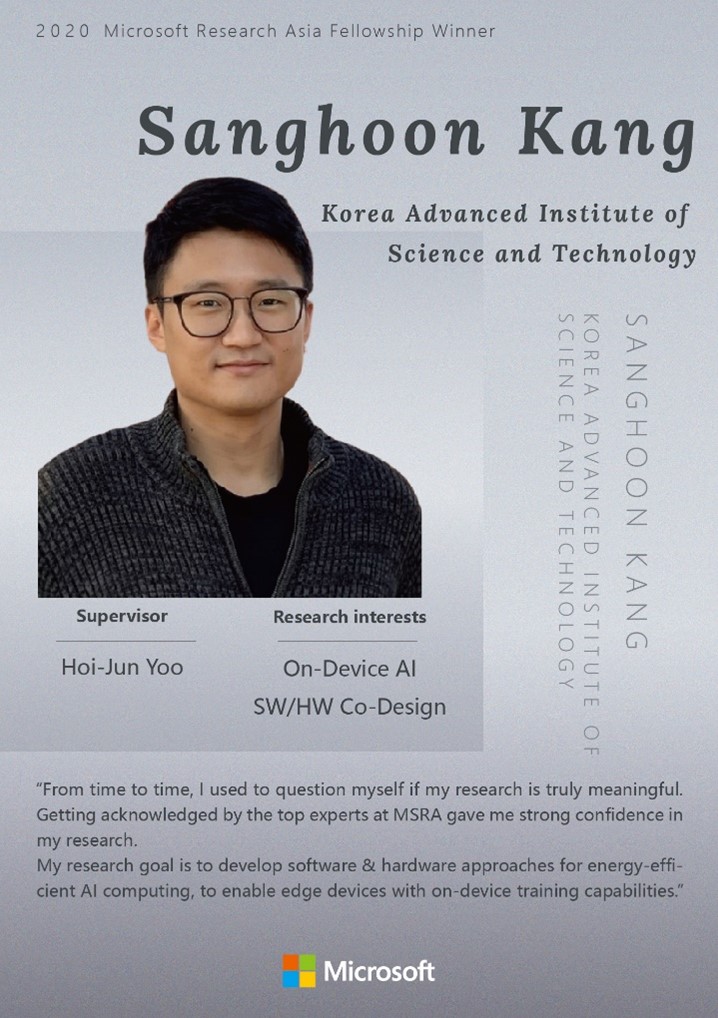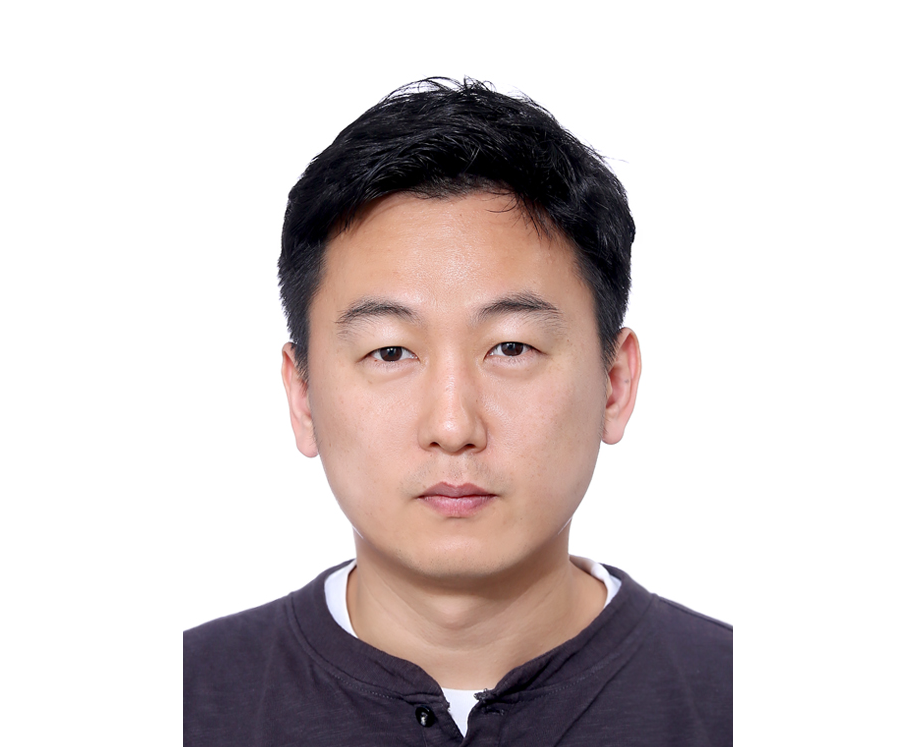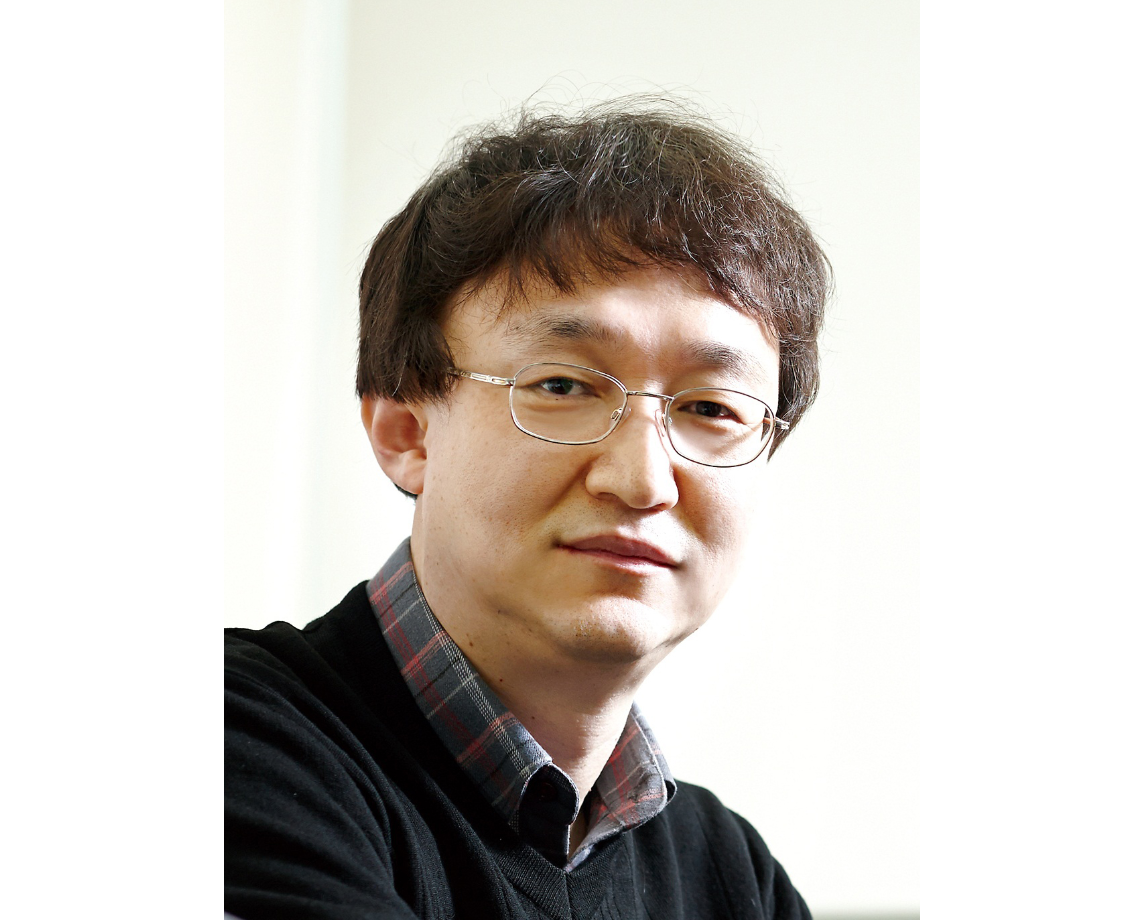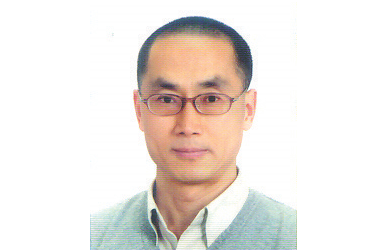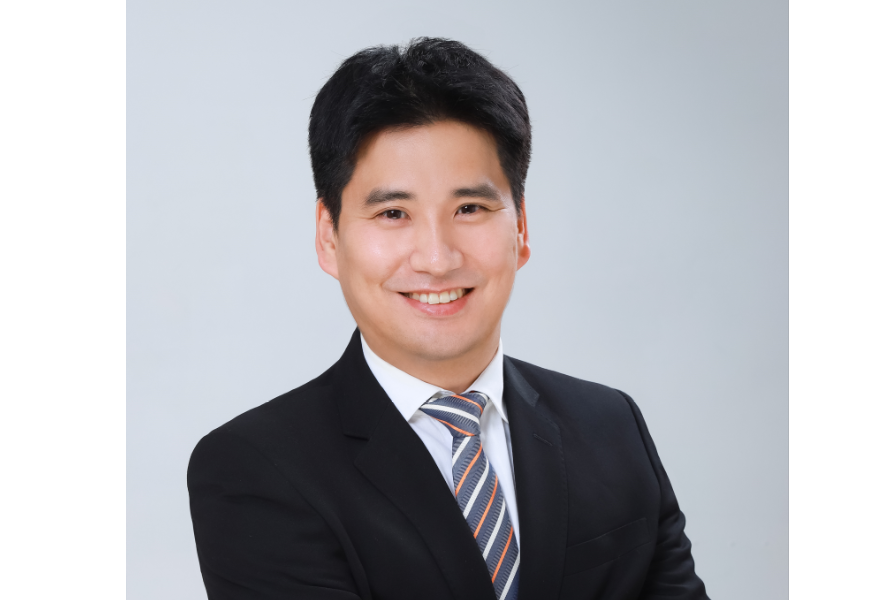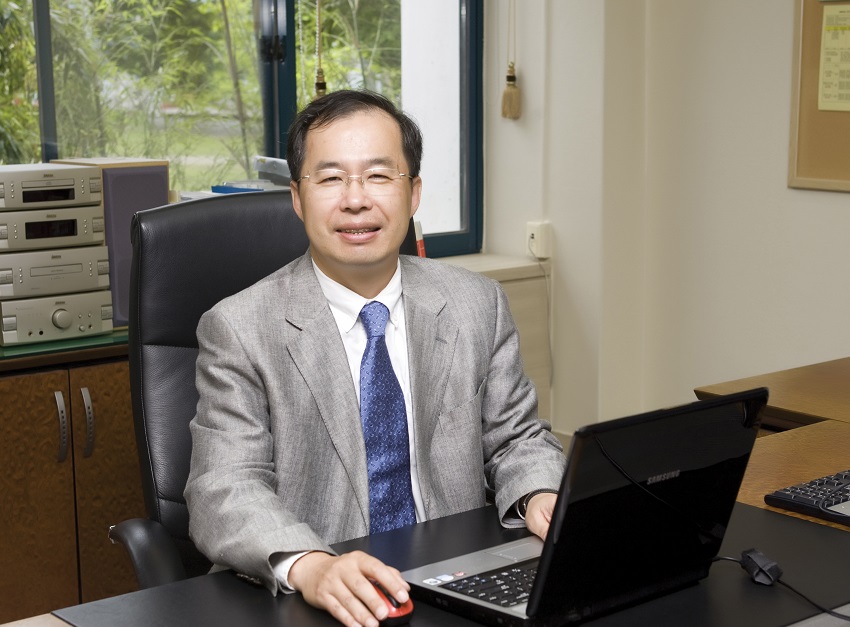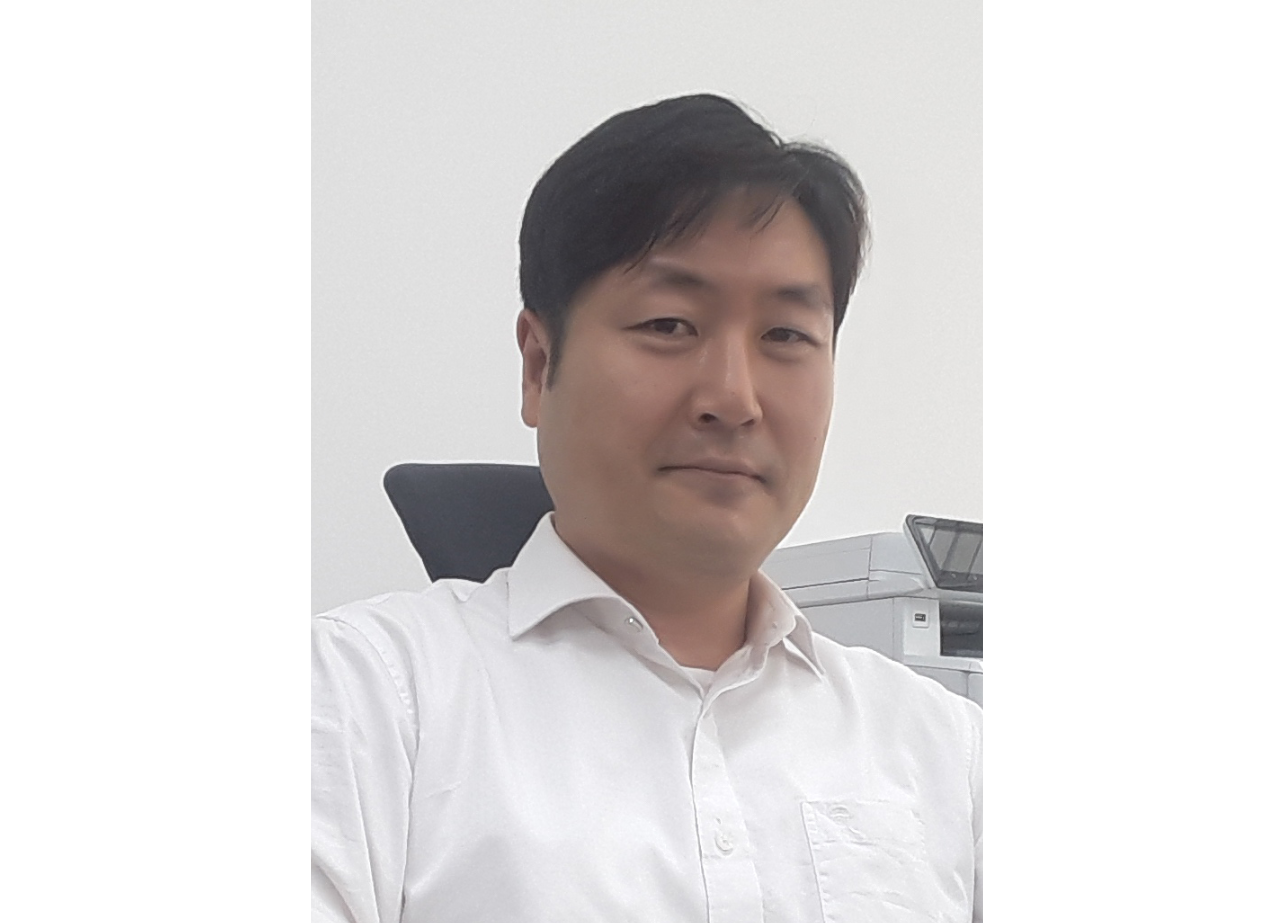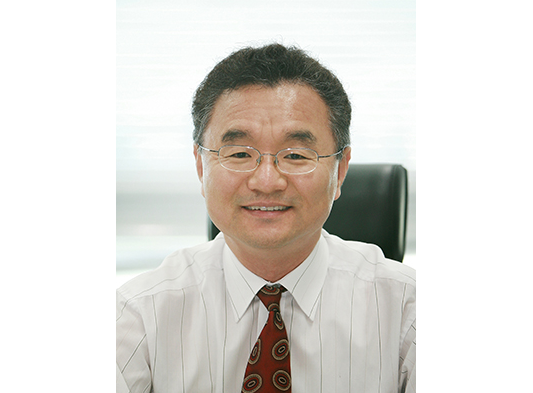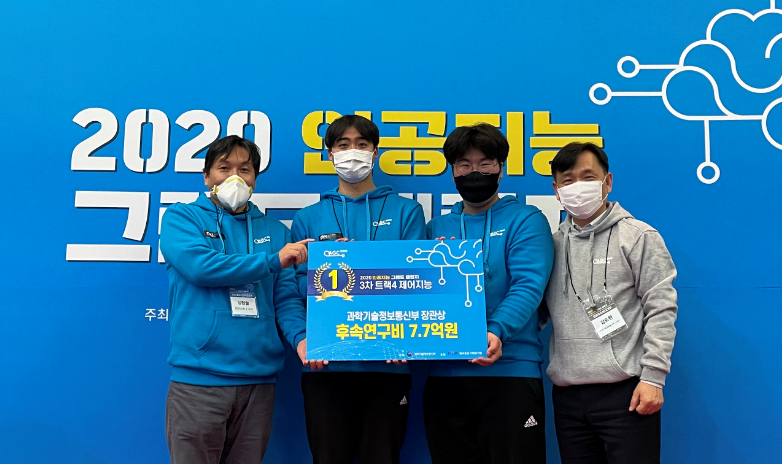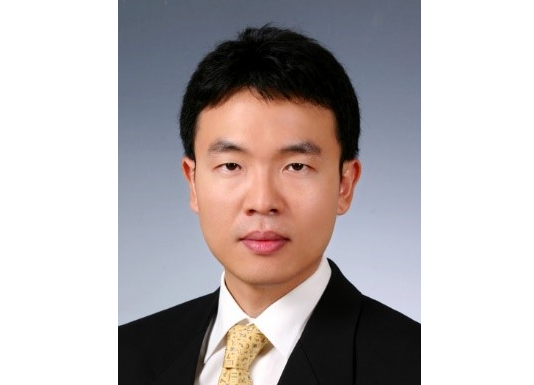This year, the Microsoft Research Asia Fellowship Award attracted 106 distinguished Ph.D. candidates from 36 leading research universities or institutions around the Asia Pacific Region to apply. As a result, only 12 extremely outstanding students have been awarded fellowships. This is the twenty-first year that Microsoft Research Asia (MSRA) discover and support the outstanding PhD students majoring in Computer Science in the Asia-Pacific Region by giving this award.
Among them, Korean students occupy three seats. They are Sanghyun Woo from Korea Advanced Institute of Science and Technology (KAIST), supervised by Prof. In So Kweon, Sanghoon Kang from KAIST, supervised by Prof. Hoi-Jun Yoo and Juheon Yi from Seoul National University, supervised by Prof. Youngki Lee.
The three students work on different research areas, but all of them have done impactful works. In the area of Computer Vision and Machine Learning, Sanghyun Woo builds high-impact attention-augmented deep models for visual recognition and reasoning and accomplishes a series of work on self-supervised and simulated learning for model generalization. For example, his work CBAM (Convolutional Block Attention Module) published in ECCV’18 has received 1000+ Google citations. His aims to build an AI agent that can think and learn like humans, with an ultimate goal to design and provide a general learning framework that can incubate various advanced future AI technologies. “With my research outcomes, I hope to become an influencer who can give a great positive impact on the world.” Sanghyun said.
Sanghoon Kang focus on On-Device AI and SW/HW Co-Design. He has made efficient hardware accelerator design for deep learning, especially energy-efficient design for mobile applications, with solid outcome (5 silicon chips over 4 years) with significant performance improvement. He also had good publications at top-tier conferences in the domain including ISSCC, S.VLSI, etc.. His research goal is to develop software & hardware approaches for energy-efficient AI computing, to enable edge devices with on-device training capabilities, to solve the dilemma that it is difficult to deploy AI applications to people’s everyday devices currently.
During the past twenty years, 429 outstanding students was awarded the Microsoft Research Asia Fellowship. Many of them have become influential researchers in their area. Predictably, this year’s winners will be the future backbone in the Korean computer science area. Let us look forward to their future achievements!
Congratulations on the outstanding performance of the research, and we also expect future academic outcomes.
[Link]
